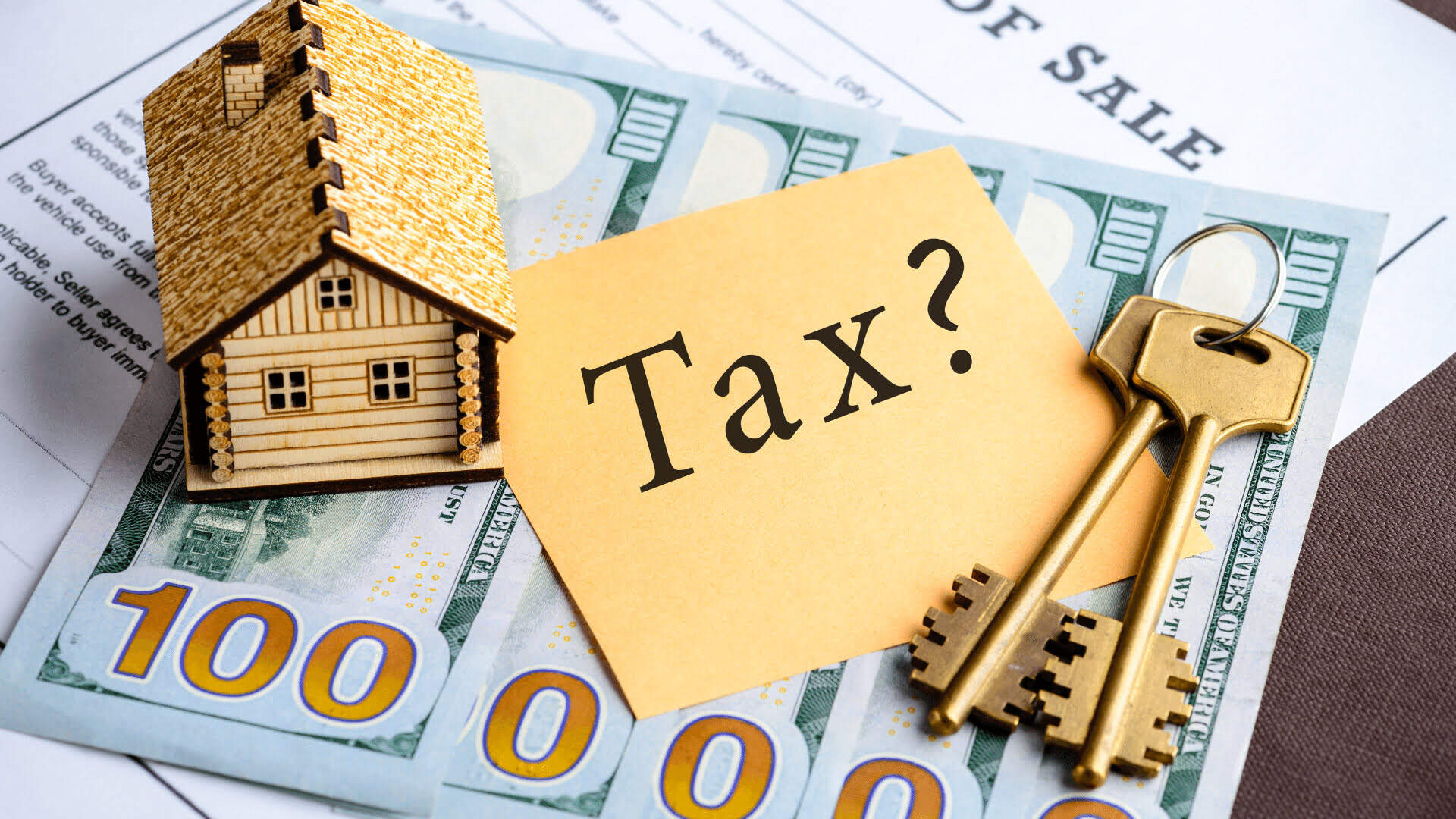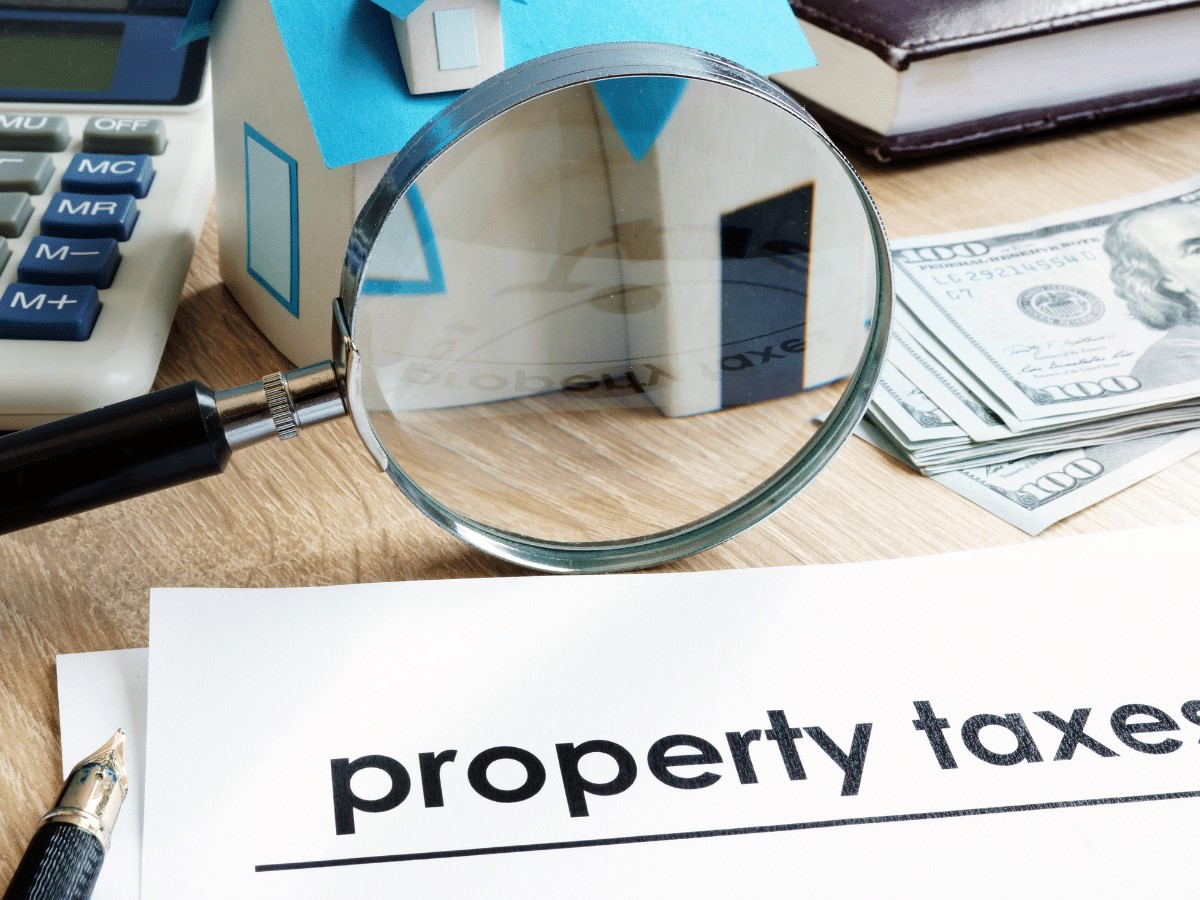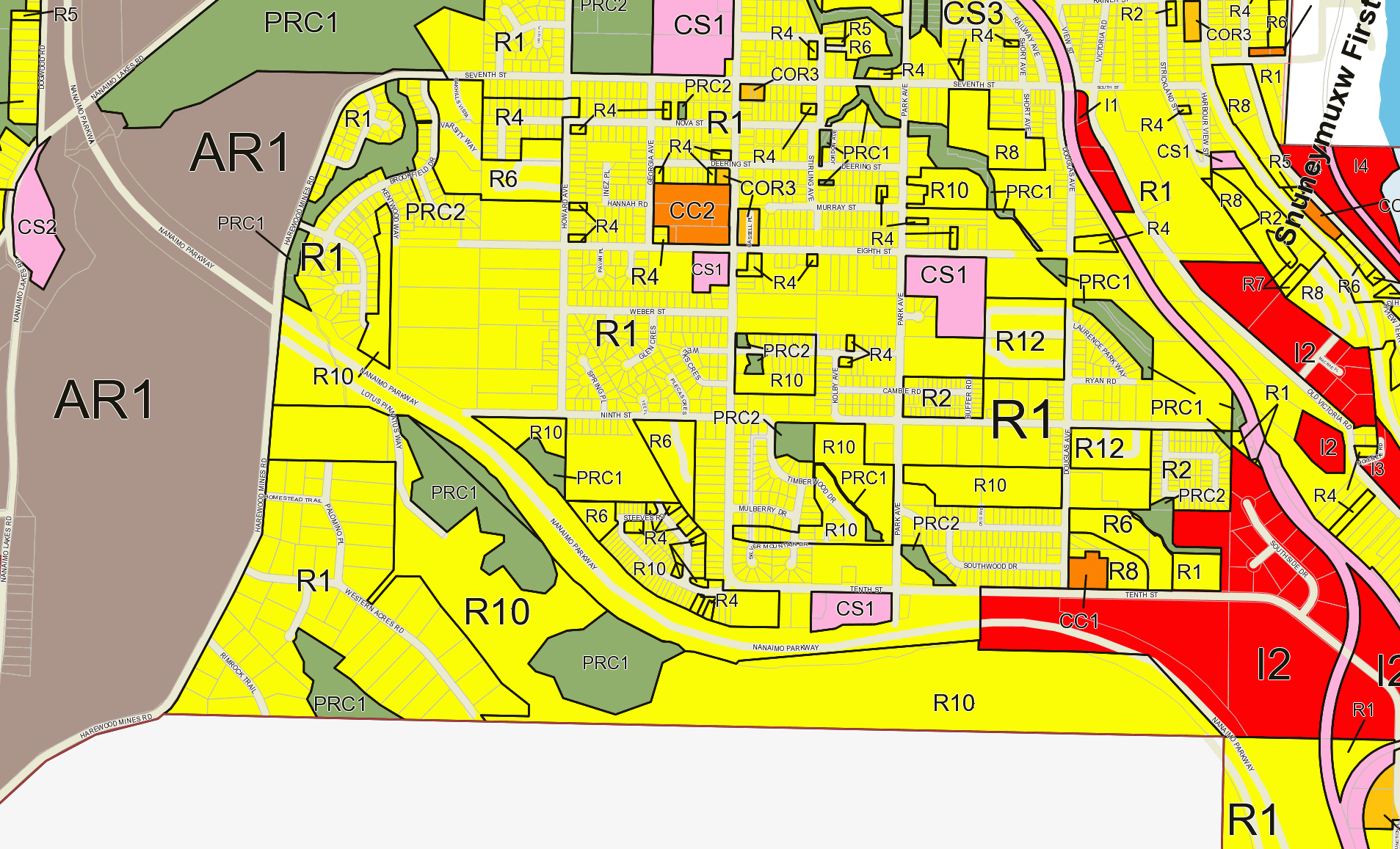Home>Home Maintenance>How Does Property Assessment Relate To Real Estate Value


Home Maintenance
How Does Property Assessment Relate To Real Estate Value
Modified: March 6, 2024
Learn how property assessment impacts real estate value and how home maintenance can affect your property's worth. Discover the connection between property assessment and maintaining your home.
(Many of the links in this article redirect to a specific reviewed product. Your purchase of these products through affiliate links helps to generate commission for Storables.com, at no extra cost. Learn more)
Introduction
When it comes to the value of a property, there are different factors that come into play. One crucial aspect of determining a property’s worth is property assessment. Property assessment is an essential process that helps determine the value of a property for various purposes, including real estate transactions, taxation, and insurance. Understanding the relationship between property assessment and real estate value is crucial for homeowners, buyers, and real estate professionals alike.
In this article, we will explore the concept of property assessment and its connection to real estate value. We will delve into the purpose of property assessment, examine the factors considered in the assessment process, and examine the role that property assessment plays in real estate transactions. Additionally, we will discuss the importance of accurate property assessment and touch upon some of the challenges and controversies surrounding the assessment process.
Whether you are a homeowner looking to understand how your property’s value is determined or a prospective buyer trying to navigate the real estate market, this article will provide you with valuable insights into the complex world of property assessment and its impact on real estate value.
Key Takeaways:
- Property assessment determines a property’s value for taxes and insurance. It’s crucial for fair taxation, transparency, and informed real estate transactions. Assessments provide a starting point for pricing and negotiation but may not always reflect the current market value.
- Accurate property assessment is essential for equity in taxation, market stability, and informed decision-making. While challenges exist, efforts to improve data accuracy and transparency are ongoing. Professional appraisals are recommended for a comprehensive analysis of a property’s market value.
Read more: How To Find Property Assessment Value
Definition of Property Assessment
Property assessment refers to the process of evaluating a property’s value for taxation, insurance, and other purposes. It involves determining the worth of a property based on various factors, such as its location, size, condition, and comparable sales in the area. Property assessments are typically conducted by government-appointed assessors or qualified professionals who specialize in property valuation.
The primary objective of property assessment is to establish a fair and equitable value for taxation purposes. Local government authorities use property assessments to determine the amount of property tax an owner is required to pay. The assessed value of the property serves as the basis for calculating the tax liability.
Property assessment is not limited to residential properties. It also includes commercial properties, vacant land, and other types of real estate. Assessors follow standardized guidelines and protocols to ensure consistency and accuracy in their evaluations. They take into account various factors such as the property’s physical characteristics, market conditions, zoning regulations, and any improvements made to the property.
It is important to note that property assessment is different from property appraisal. While property assessment is primarily used for taxation purposes, property appraisal is conducted by licensed appraisers to determine the market value of a property for buying, selling, or financing purposes. The appraisal process is more detailed and comprehensive, taking into account a wide range of factors that influence a property’s market value.
Overall, property assessment provides a standardized and objective method of evaluating a property’s value. It serves as an essential tool for local governments to collect property taxes, ensure fairness in taxation, and provide a basis for insurance coverage. Understanding the process of property assessment is crucial for property owners, as it directly influences their tax obligations and can have an impact on their overall financial planning.
Definition of Real Estate Value
Real estate value, also known as property value or market value, refers to the estimated worth of a property in the current real estate market. It represents the price a buyer is willing to pay for a property and the amount a seller is willing to accept. Real estate value is influenced by various factors such as location, condition, size, amenities, and market demand.
Real estate value is subjective and can vary based on individual perceptions and market dynamics. It is not a fixed or static figure but rather a fluctuating estimation that is continuously evolving with changing market conditions. Real estate professionals, including appraisers and real estate agents, play a crucial role in determining the value of a property by analyzing comparable sales, conducting market research, and considering the property’s unique features.
The market value of a property is not solely based on the property’s physical attributes. It is also influenced by external factors such as the overall state of the economy, interest rates, local regulations, and supply and demand dynamics. For example, a property located in a desirable neighborhood with high demand and limited supply is likely to have a higher value compared to a similar property in a less sought-after location.
It is essential to distinguish between different types of real estate values. Assessed value, as discussed earlier, is the value determined by assessors for taxation purposes. Appraised value, on the other hand, is the opinion of a licensed appraiser who evaluates the property’s fair market value based on a detailed analysis of various factors. Both the assessed value and appraised value may differ from the actual market value of a property.
Real estate value is dynamic and subject to change. Market conditions, economic trends, and local developments can all impact the value of a property. It is crucial for property owners and potential buyers to stay informed about current market trends and seek professional guidance when buying or selling a property to ensure they are making informed decisions based on the current real estate value.
In summary, real estate value represents the estimated worth of a property in the current market. It is influenced by various factors and can fluctuate over time. Understanding the concept of real estate value is essential for homeowners, buyers, and sellers to make informed decisions in the real estate market.
Purpose of Property Assessment
Property assessment serves several important purposes that contribute to the functioning of local governments, the real estate industry, and the overall economy. Let’s explore some of the key reasons for conducting property assessments:
1. Taxation: One of the primary purposes of property assessment is to determine the value of a property for taxation purposes. Local government authorities use property assessments to calculate property taxes, which are a significant source of revenue for funding public services and infrastructure. By assessing the value of properties within their jurisdiction, governments can ensure a fair and equitable distribution of the tax burden amongst property owners.
2. Equity: Property assessments help promote fairness and equity in the taxation system. By accurately assessing the value of properties, assessors ensure that each property owner contributes their fair share of taxes based on the value of their property. This helps prevent underassessment or overassessment of properties, ensuring that tax liabilities are distributed in a consistent and equitable manner.
3. Real Estate Market Monitoring: Property assessments provide valuable data for monitoring the real estate market and tracking changes in property values over time. Governments, real estate professionals, and analysts use this information to gauge market trends, identify areas of growth, and make informed decisions regarding land use planning, investment, and development strategies.
4. Insurance Purposes: Property assessments also play a crucial role in insurance coverage determinations. Insurance companies utilize property assessments to assess the replacement value of a property or determine the amount of coverage needed for a property. Accurate property assessments help ensure that property owners have adequate insurance coverage in the event of damage or loss.
5. Mortgage Lending: Property assessments are utilized by mortgage lenders when determining the loan-to-value ratio for a property. Lenders need to evaluate the value of a property to assess the level of risk associated with lending. Accurate property assessments provide lenders with the necessary information to determine appropriate mortgage loan amounts.
6. Transparency: Property assessments contribute to transparency and public accountability in the tax system. Property owners can review and challenge their property assessments if they believe it is inaccurate or unfair. This allows for a transparent process where property owners have the opportunity to ensure their assessments are based on accurate information.
Overall, the purpose of property assessment is to determine the value of a property for various important reasons such as taxation, insurance, market monitoring, mortgage lending, and promoting fairness in the system. Property assessments provide a standardized and objective method of evaluating property values, benefiting property owners, local governments, and the real estate industry as a whole.
Factors Considered in Property Assessment
Property assessment involves an evaluation of various factors that contribute to the value of a property. Assessors consider a combination of both objective and subjective criteria to ensure an accurate and fair assessment. While the specific factors considered may vary depending on the jurisdiction and the type of property being assessed, the following are some common factors that assessors take into account:
1. Location: The location of a property is often considered one of the most significant factors in property assessment. Assessors assess the property’s proximity to amenities such as schools, parks, shopping centers, and transportation hubs. They also consider the neighborhood’s desirability, safety, and overall appeal.
2. Size and Character: The size and physical characteristics of a property are crucial factors in determining its value. Assessors consider the lot size, building dimensions, number of rooms, and overall layout. They also evaluate unique features or architectural elements that may enhance or detract from the property’s value.
3. Condition: The condition of a property plays a vital role in its assessment. Assessors take into account factors such as the age of the property, maintenance history, and any renovations or repairs that have been done. Properties in good condition are generally valued higher, as they require less immediate investment by potential buyers or owners.
4. Comparable Sales: Assessors analyze recent sales of similar properties in the area to establish market trends and determine the value of the property being assessed. They consider factors such as the selling price, property features, and location of comparable properties to arrive at a fair assessment value.
5. Income Potential: For rental properties or commercial properties, assessors may consider the potential income that the property can generate. They evaluate factors such as rental rates, occupancy rates, and the property’s overall income-producing potential.
6. Market Trends: Assessors stay informed about current market trends to understand how they may affect property values. They analyze factors such as supply and demand dynamics, economic conditions, and interest rates to make accurate assessments that reflect the current market value of the property.
7. Legal and Zoning Restrictions: Assessors consider any legal or zoning restrictions that may impact the value of a property. This includes factors such as building codes, zoning regulations, and restrictions on land use.
8. Environmental Factors: Assessors also evaluate any environmental factors that may affect the value of a property. This can include considerations such as flood zones, proximity to environmentally sensitive areas, or contamination risks.
It is important to note that while these factors are widely considered in property assessments, their weight and importance may vary depending on the specific property type and local regulations. Assessors aim to maintain consistency and fairness in their assessments by taking into account both objective data and professional judgment to arrive at an accurate value for the property being assessed.
Property assessment is the process of determining the value of a property for tax purposes. It can impact real estate value, but it’s important to remember that assessed value may not always reflect the true market value of a property.
Relationship Between Property Assessment and Real Estate Value
Property assessment and real estate value are closely connected, but it is important to note that they are not always identical. Property assessment is a valuation conducted for taxation and administrative purposes, while real estate value refers to the estimated worth of a property in the current market. However, property assessments can provide a starting point for understanding the value of a property in the real estate market. Let’s explore the relationship between property assessment and real estate value in more detail:
1. Indicator of Value: Property assessments can serve as an initial indicator of a property’s value in the market. Assessors utilize various factors, such as location, size, condition, and comparable sales, to determine the assessed value of a property. While the assessed value may not always align precisely with the market value, it can provide a baseline estimation for real estate professionals and property owners.
2. Market Fluctuations: Real estate values are subject to market fluctuations, which may not always be accurately reflected in property assessments. Assessments are generally conducted periodically, often once a year or less frequently, and may not capture immediate shifts in the market. Real estate values can experience rapid changes due to factors such as supply and demand, economic conditions, or changes in neighborhood desirability.
3. Assessment Ratios: Many jurisdictions apply assessment ratios to determine the assessed value’s relationship to the market value. These ratios are used to maintain fairness and consistency in property taxation. For example, if an assessment ratio of 80% is applied, the assessed value may be considered 80% of the market value. This ratio ensures that property taxes are calculated in a consistent manner based on a predetermined percentage of the property’s market value.
4. Appraisal for Market Value: Real estate appraisals conducted by licensed appraisers provide a more comprehensive and detailed analysis of a property’s market value. Unlike property assessments, appraisals are conducted specifically to determine the market value of a property in the current real estate market. Appraisals consider a wider range of factors, including recent comparable sales, property condition, and other market-specific considerations to arrive at a more accurate estimation of value.
5. Market Demand and Property Value: While property assessments consider factors such as location and size, market demand can significantly impact the value of a property. A high-demand area with limited housing supply may drive up property values beyond what is reflected in a property assessment. Similarly, a property located in a less desirable area or a market with low demand may have a lower market value compared to the assessed value.
It is crucial to remember that property assessments and real estate values serve different purposes. Property assessments primarily determine taxation obligations, while real estate values reflect the current estimated worth of a property in the market. However, property assessments can provide a starting point for understanding a property’s value and can be useful in certain real estate transactions such as refinancing or insurance purposes. When it comes to determining a property’s market value, a thorough appraisal by a qualified professional is the recommended approach.
Role of Property Assessment in Real Estate Transactions
Property assessment plays a significant role in real estate transactions, providing valuable information and insights for both buyers and sellers. Let’s explore the various ways in which property assessment impacts real estate transactions:
1. Pricing Guidance: Property assessments can serve as a starting point for determining the price of a property in a real estate transaction. Sellers can use the assessed value as a reference when setting an initial asking price, while buyers can utilize the assessed value as a basis for evaluating the fairness of the price. However, it is crucial to note that assessments may not always reflect the current market value and that a professional appraisal is recommended for a more accurate valuation.
2. Negotiation Tool: Property assessments can be utilized as a negotiation tool in real estate transactions. Buyers and sellers can refer to the assessed value to support their arguments and negotiate a fair price. In some cases, the assessed value may be used as a starting point for negotiating adjustments due to factors such as repairs needed, market conditions, or unique property characteristics.
3. Tax Implications: Property assessments have implications for property taxes, which can impact real estate transactions. Buyers need to be aware of the assessed value and understand how it may affect their future tax obligations. Additionally, sellers should consider the potential impact of a property assessment increase on the property’s marketability and attractiveness to buyers.
4. Financing Considerations: Property assessments play a role in mortgage financing transactions. Lenders often consider the assessed value of a property when determining the loan-to-value ratio. They may also request a recent property assessment report, especially for larger loan amounts. Additionally, the assessed value can help buyers determine the amount of down payment required and affect the interest rate offered by the lender.
5. Due Diligence and Investment Analysis: Property assessments provide valuable information for buyers conducting due diligence and investment analysis. Assessments offer insights into a property’s physical characteristics, condition, and potential income generation for rental properties. Buyers can use these details to evaluate the property’s potential return on investment and assess the financial viability of the transaction.
6. Risk Assessment: Property assessments help buyers and sellers assess potential risks associated with a property. Assessments can reveal any zoning restrictions, environmental concerns, or other legal factors that may impact the property’s value or intended use. Buyers can use this information to make informed decisions and mitigate any potential risks.
7. Market Awareness: Property assessments provide valuable market awareness for both buyers and sellers. Assessments can reveal market trends, changes in property values over time, and comparable sales in the area. This information enables buyers and sellers to make informed decisions based on the current market conditions and helps them understand the competitive landscape.
While property assessments are influential in real estate transactions, it is crucial to recognize that they have limitations and may not always capture the true market value of a property. For a more accurate valuation, it is recommended to obtain a professional appraisal conducted by a licensed appraiser. Nonetheless, property assessments serve as a valuable tool in providing initial insights and information for real estate transactions, allowing buyers and sellers to make informed decisions based on the assessed value and relevant market factors.
Importance of Accurate Property Assessment
Accurate property assessment is essential for various stakeholders, including homeowners, buyers, real estate professionals, and local governments. Let’s explore the importance of accurate property assessment in more detail:
1. Equitable Taxation: Accurate property assessment ensures that property taxes are distributed fairly and equitably among property owners. By assessing properties at their true market value, local governments can ensure that each property owner contributes their fair share of taxes based on the value of their property. This promotes fairness and prevents some property owners from shouldering a disproportionate tax burden.
2. Transparency and Accountability: Accurate property assessment promotes transparency and public accountability in the tax system. Property owners can review their assessments and challenge them if they believe they are unfair or inaccurate. This oversight helps ensure that assessments are based on accurate information and provides property owners with a means to address any discrepancies or errors.
3. Real Estate Market Stability: Accurate property assessments contribute to the stability of the real estate market. By reflecting the true market value of properties, assessments help maintain a balance between supply and demand. This stability encourages confident investment in the real estate market and supports sustainable growth.
4. Facilitates Real Estate Transactions: Accurate property assessments provide reliable information for buyers and sellers during real estate transactions. Buyers can make informed decisions about the price they are willing to pay based on the assessed value, and sellers can set an appropriate asking price. Accurate assessments minimize uncertainty and promote trust between parties, facilitating smoother transactions.
5. Insurance Coverage: Accurate property assessments are vital for determining adequate insurance coverage. Insurance companies rely on property assessments to understand the replacement value of a property and calculate appropriate coverage amounts. Underinsured properties put owners at risk of significant financial loss in the event of damage or loss. Accurate assessments enable property owners to obtain the right insurance coverage to protect their investment.
6. Investment Analysis: Accurate property assessments support informed investment analysis. Investors rely on accurate assessments to evaluate the financial viability of potential real estate investments. Accurate assessments provide critical data on a property’s value and income potential, helping investors make sound decisions and maximize their return on investment.
7. Planning and Development: Accurate property assessments provide valuable information for land use planning and development. Governments and urban planners use assessments to understand property values, identify areas for growth, and make informed decisions regarding infrastructure development and zoning regulations.
8. Financial Planning: Accurate property assessments are crucial for property owners’ financial planning. Property values impact individuals’ net worth and can influence retirement planning, estate planning, and overall financial stability. Accurate assessments provide homeowners with a realistic understanding of their property’s value, enabling them to make informed decisions about their financial future.
Without accurate property assessment, the foundation of fair taxation, transparent transactions, and stability in the real estate market would be compromised. Accurate assessments provide valuable information for homeowners, buyers, real estate professionals, and governments, enabling them to make informed decisions, promote fairness, and ensure the proper functioning of the real estate industry.
Challenges and Controversies Surrounding Property Assessment
While property assessment serves essential purposes in real estate and taxation, it is not without its challenges and controversies. Let’s explore some of the common issues surrounding property assessment:
1. Subjectivity: Property assessment involves a degree of subjectivity, as assessors need to make judgment calls based on various factors. Different assessors may have different opinions on the value of a property, leading to inconsistencies and potential disputes between property owners and assessors.
2. Market Timing: The timing of property assessments can be a challenge, as they may not always align with the current market conditions. Assessments are often conducted periodically, typically once a year or less frequently. If there are significant changes in the real estate market between assessments, the assessed values may not accurately reflect the property’s current market value.
3. Complexity: Property assessment is a complex process involving multiple factors and considerations. Assessors need to evaluate various aspects such as property size, location, condition, comparable sales, and market trends. The complexity of the assessment process can lead to errors, inconsistencies, or challenges in accurately capturing all relevant factors.
4. Data Accuracy: Accurate assessment relies heavily on accurate and up-to-date data. Errors or incomplete information in property records or inadequate data collection processes can impact the accuracy of assessments. Inaccurate data can lead to incorrect assessments, disputes, and challenges.
5. Assessment Appeals: Property owners have the right to challenge their property assessments if they believe they are inaccurate or unfair. This can lead to a significant administrative burden on the assessors’ office and prolong the resolution of assessment disputes. The appeals process can also create uncertainty for property owners and impact the streamlining of real estate transactions.
6. Controversial Methodologies: Different jurisdictions may use different assessment methodologies, leading to discrepancies and potential controversies. Some methodologies, such as mass appraisal techniques, rely on statistical models and algorithms to determine property values. Critics argue that these methods may not accurately reflect the uniqueness or individual characteristics of each property, leading to assessments that are biased or unfair.
7. Market Fluctuations: Real estate market fluctuations pose a challenge for property assessments. Assessments may not always accurately reflect the rapid changes in property values due to supply and demand dynamics, economic conditions, or market trends. This can lead to assessments that either lag behind or overestimate the true market value of a property.
8. Assessment Equity: Despite efforts to ensure equity in property assessments, disparities can still occur. Certain types of properties, such as commercial or high-value properties, may receive more scrutiny and accurate assessments compared to residential or lower-value properties. This can lead to perceived inequities in the tax burden borne by property owners.
Efforts are continuously made to address the challenges and controversies surrounding property assessment. Governments and assessors strive to improve data accuracy, transparency, and fairness in the assessment process. Regular evaluation and review of assessment methodologies are conducted to ensure they align with best practices and reflect market realities. Additionally, advancements in technology and data analytics can help improve the accuracy and efficiency of property assessments.
Overall, property assessment is an indispensable tool for taxation and real estate transactions. While challenges and controversies exist, it is crucial to continue refining the assessment processes and embracing transparency to ensure fair tax distribution and promote confidence in the real estate market.
Read more: Why Did The Real Property Assessment Drop?
Conclusion
Property assessment is a vital component of the real estate industry, serving various purposes for homeowners, buyers, real estate professionals, and local governments. It involves evaluating a property’s value for taxation, insurance, and other administrative purposes. While property assessment is not without challenges and controversies, its importance cannot be understated.
Accurate property assessment plays a crucial role in ensuring equity in taxation, promoting transparency and accountability, and providing valuable information for real estate transactions. Assessments serve as a starting point for determining a property’s value, guiding pricing, negotiation, and decision-making by both buyers and sellers. They also contribute to market stability, helping to prevent market fluctuations and providing valuable data for planning and investment analysis.
However, it is important to recognize the limitations of property assessments. They may not always reflect the current market value or account for immediate market changes. To obtain a more accurate valuation, professional appraisals are recommended. Appraisals consider a broader range of factors and provide a comprehensive analysis of a property’s market value.
Continued efforts are being made to address the challenges surrounding property assessment. Improving data accuracy, refining assessment methodologies, and embracing transparency are crucial in ensuring a fair and efficient assessment process. Additionally, advancements in technology can enhance the accuracy and efficiency of assessments, leading to more reliable valuations.
Overall, accurate property assessment is essential for promoting fairness, stability, and transparency in the real estate market. It provides valuable information for financial planning, investment decisions, and taxation. Property owners, buyers, sellers, and governments all benefit from a well-executed assessment process that accurately reflects the market value of properties.
It is important for property owners and those involved in real estate transactions to have a general understanding of property assessment and its relationship to real estate value. By being knowledgeable about the assessment process and seeking professional guidance when needed, individuals can navigate the real estate market with confidence and make informed decisions regarding their properties.
In conclusion, property assessment forms a fundamental pillar of the real estate industry, contributing to fair taxation, transparent transactions, and market stability. By recognizing its importance and embracing continuous improvement, stakeholders can ensure the accuracy and relevance of property assessments in the dynamic world of real estate.
Frequently Asked Questions about How Does Property Assessment Relate To Real Estate Value
Was this page helpful?
At Storables.com, we guarantee accurate and reliable information. Our content, validated by Expert Board Contributors, is crafted following stringent Editorial Policies. We're committed to providing you with well-researched, expert-backed insights for all your informational needs.














0 thoughts on “How Does Property Assessment Relate To Real Estate Value”